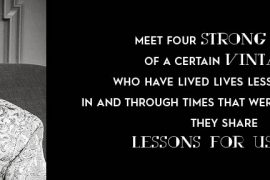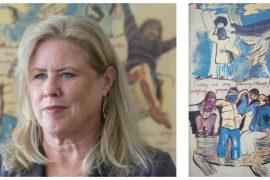Photographed by Hillary Schave
For people trapped in the torturous undertow of opioid addiction, true recovery is riddled with obstacles.
Dr. Aleksandra Zgierska is working to ensure they can have access to skilled clinicians without being derailed by stigma or jail.
“Wouldn’t it be better if a person with addiction could feel comfortable returning from the doctor and say, ‘Hey, I’ve been diagnosed with opioid addiction and here’s my treatment plan,’ just as they would do for diabetes or hypertension?” asks Zgierska, a researcher, assistant professor and physician with UW-Madison’s Department of Family Medicine and Community Health. “But no one does that because they’re afraid of the reaction.”
Hiding addiction keeps people from getting help, a problem in Wisconsin where 614 people died from opioid overdose in 2015. In 2016, Madison police or fire staff responded to 440 heroin overdoses, most of which were not fatal.
Born in Poland, “Dr. Z” moved here in 1999 to join her husband, Dr. David Rabago. She did her residency in family medicine at UW-Madison. “I wanted to provide more comprehensive care,” says Zgierska. “As a family medicine doctor, I can care for essentially anybody with any problem.”
Dealing with addiction was new to her, so she dove into learning more. During her studies, she was inspired by the passion of Dr. Michael Miller, now medical director at Herrington Recovery Center at Rogers Memorial Hospital, and Dr. Michael Fleming, UW-Madison professor and expert in addiction research.
Zgierska, who’s since done research to reveal proven treatment options, is now inspiring Miller. “She’s willing to push systems to change on behalf of patients,” Miller says. “She’s engaged professionals from multiple disciplines to work together on improving addiction care and addiction policies.”
In fact, Zgierska testified on behalf of the plaintiff in a trial that could overturn Wisconsin’s “Cocaine Mom Law.” The plaintiff testified that she’d stopped using drugs, but the state jailed her under the law until she submitted to drug assessment, refusing her counsel during the hearing. She says the law violated her right to due process. Experts on addiction treatment, including Zgierska, the American College of Obstetricians and Gynecologists and the American Public Health Association, say the law could cause women who are using drugs to avoid medical care. Last April, a U.S. District Court judge agreed with the plaintiff. The case is under appeal.
In 2018, Zgierska, who is on the boards of the Wisconsin Society of Addiction Medicine and the American Society of Addiction Medicine, will work on studies she hopes will improve care for people with addiction.
The first, an $8.4-million, five-year study, will look at how mindfulness meditation and cognitive behavioral therapy can improve people’s health and reduce dependence on medications.
The other, the Madison Addiction Recovery Initiative, launched in 2016. She’s partnering with the Madison Police Department to send people to treatment instead of jail after overdosing or committing certain drug-related crimes. Participants who successfully complete the six-month program won’t be charged with the original crime.
Zgierska says she hopes her work will help people overcome addiction and help prove that effective, patient-based treatment—not jail and shame— will free them from addiction’s awful grip.
–Lisa Schuetz




